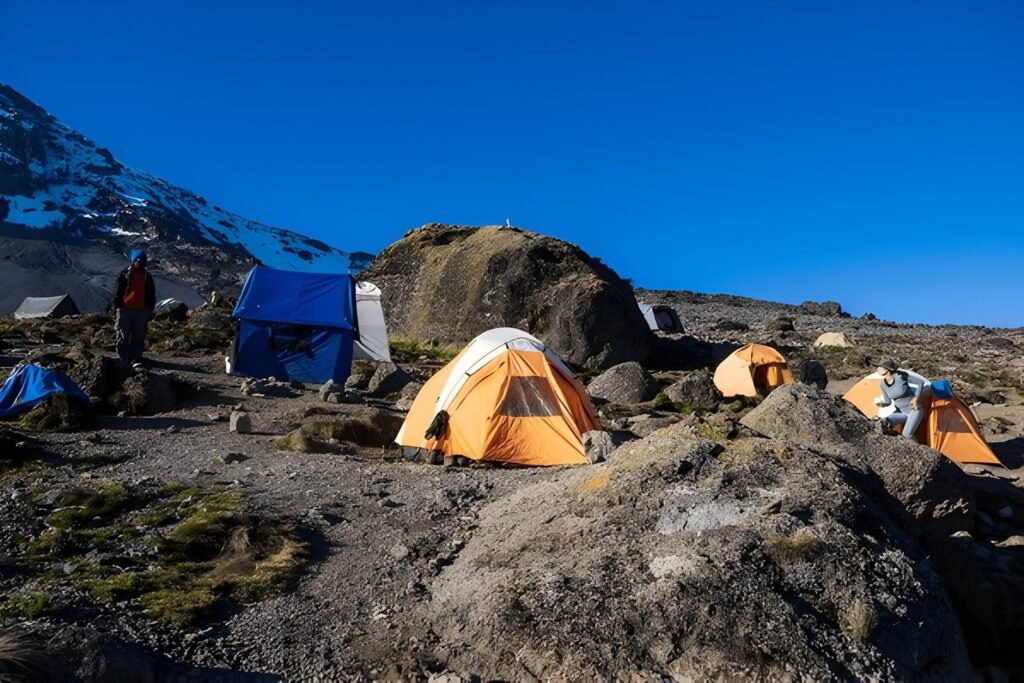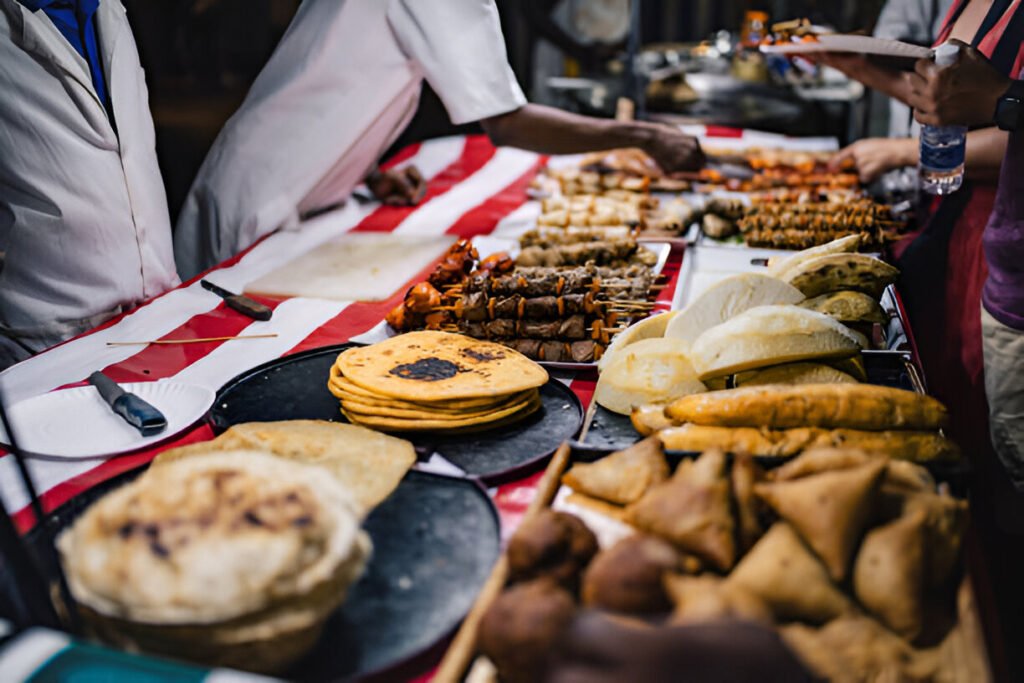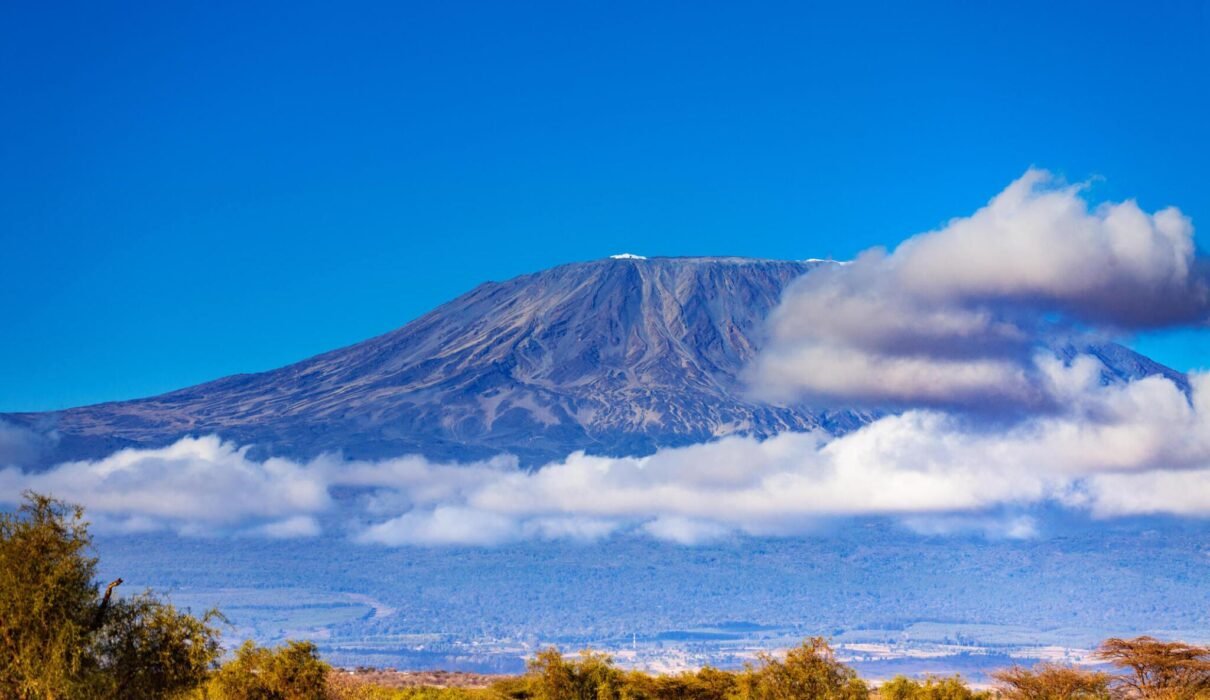Food on Kilimanjaro: What to Expect on Your Trek Climbing Mount Kilimanjaro is one of the most rewarding challenges for any adventurer. While the journey is physically demanding, it’s important to remember that nutrition plays a vital role in your success. Understanding what food will be available during your Kilimanjaro trek will help you prepare mentally and physically for the climb. In this post, we’ll cover the types of meals provided, how food is prepared, and what you can expect to eat during your adventure.

Food on Kilimanjaro: What to Expect on Your Trek Why Proper Nutrition Matters on Kilimanjaro
Food on Kilimanjaro: What to Expect on Your Trek As you climb higher on Kilimanjaro, your body requires more energy to combat the effects of altitude and physical exertion. The food served on the trek is designed to provide the nutrients and calories needed to keep you going, helping to prevent fatigue and altitude sickness.
For more detailed information about the effects of altitude and nutrition, read this helpful guide.
What Kind of Food is Served on Kilimanjaro?
The meals prepared on Kilimanjaro are designed to be nutritious, filling, and easy to digest. The types of food you’ll eat will vary from day to day, but typically include a mix of carbohydrates, proteins, and fats to keep your energy levels up. Here’s a breakdown of what you can expect:

Food on Kilimanjaro: What to Expect on Your Trek (Breakfast)
A hearty breakfast is essential before you start your day on the trail. Typical Kilimanjaro breakfasts include:
- Porridge: A warm bowl of oatmeal or corn porridge, providing plenty of energy for the morning.
- Eggs: Usually boiled or scrambled, packed with protein.
- Pancakes: A Kilimanjaro favorite, these are often served with jam or honey for added sweetness.
- Fruit: Bananas, oranges, and other local fruits are often served to help hydrate and add fiber to your diet.
Learn more about the health benefits of porridge and other high-carb breakfasts here.
Food on Kilimanjaro: What to Expect on Your Trek (Lunch)
Lunches on Kilimanjaro are usually served at rest stops. Meals are kept light yet filling, often consisting of:
- Sandwiches: Made with cheese, vegetables, or peanut butter.
- Soups: Warm soups, such as lentil or vegetable, are served to keep you hydrated and nourished.
- Pasta or Rice: These are easy to prepare and full of carbohydrates for energy.
- Vegetables: Fresh, steamed veggies like carrots, green beans, and cabbage.
Discover more about why soups are a great choice for high-altitude adventures in this nutrition article.
Food on Kilimanjaro: What to Expect on Your Trek (Dinner)
After a long day of trekking, dinner is the most substantial meal of the day. Common options include:
- Stews: Beef, chicken, or vegetable stews served with rice or pasta.
- Potatoes: Roasted or mashed, often paired with meat and vegetables.
- Bread: Freshly made bread or chapati (flatbread) is commonly served.
- Desserts: Fresh fruit or simple sweet treats to end the day.
For more information on the importance of carbs like pasta and rice in trekking diets, check out this guide on high-energy foods.
Special Dietary Requirements
Food on Kilimanjaro: What to Expect on Your Trek ,Worried about dietary restrictions? Don’t be. Whether you’re vegetarian, vegan, or gluten-free, Kilimanjaro operators can cater to special diets as long as they are informed in advance. Expect plant-based proteins, like beans and lentils, for vegetarians, and alternative grains like quinoa for those avoiding gluten.
To learn how plant-based diets can support high-energy activities, take a look at this study.
Food on Kilimanjaro: What to Expect on Your Trek (Snacks and Hydration)
In addition to main meals, snacks are an essential part of your Kilimanjaro diet. Your guides will typically provide snacks like:
- Energy Bars: High-calorie, nutrient-dense bars to fuel you during the day.
- Nuts: Almonds, peanuts, and cashews provide protein and healthy fats.
- Fruit: Dried or fresh fruit, like apples and oranges, are great sources of vitamins and natural sugars.
Staying hydrated is just as important as eating well. Throughout the trek, you’ll be provided with boiled and filtered water. Most trekkers bring a hydration system, like a camelback, or water bottles to carry and sip along the way.
For more tips on hydration at high altitudes, read this advice.
How is Food Prepared on Kilimanjaro?
Meals on Kilimanjaro are prepared by a dedicated team of cooks, often using basic equipment in a portable kitchen setup. Despite the simple conditions, the food is both safe and delicious, with special attention given to hygiene to avoid any risk of foodborne illness.
The use of locally sourced, fresh ingredients also ensures that the meals are healthy and packed with flavor. The cooking team works hard to make sure you are well-fed, no matter where you are on the mountain.
Curious about food preparation in remote conditions? Learn more here.
What to Bring for Your Own Nutrition
While Kilimanjaro operators provide most of the food, many trekkers like to bring their own snacks or supplements to help boost their energy levels during the climb. Here are a few things you might consider packing:
- Electrolyte Tablets: These help maintain proper hydration, especially at higher altitudes.
- Protein Bars: Extra protein can be helpful in muscle recovery after a long day of trekking.
- Chocolate or Candy: A sweet treat can give you a quick energy boost and lift your spirits during tough sections of the hike.
Check out this comprehensive list of trekking snacks and supplements.
Conclusion: Fueling Your Kilimanjaro Adventure
Eating well on Kilimanjaro is about more than just satisfying your hunger – it’s about fueling your body for one of the most physically demanding adventures of your life. By understanding what types of meals and snacks you’ll be eating, you can better prepare for the climb. Remember, staying well-fed and hydrated is key to a successful Kilimanjaro trek.
If you’re ready to take on the adventure of a lifetime, explore more about climbing Kilimanjaro and the meals you’ll enjoy along the way with Kilimanjaro Climb Specialist or Eddy Tours & Safaris.

